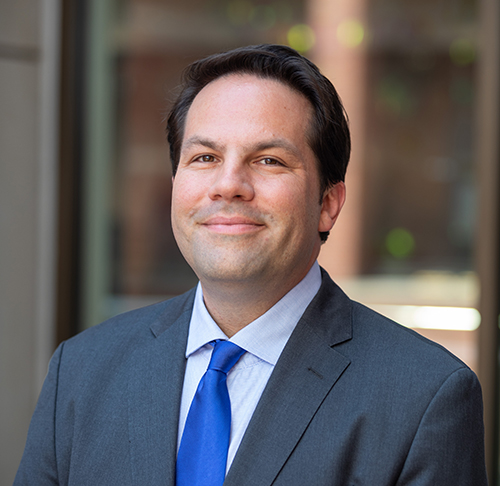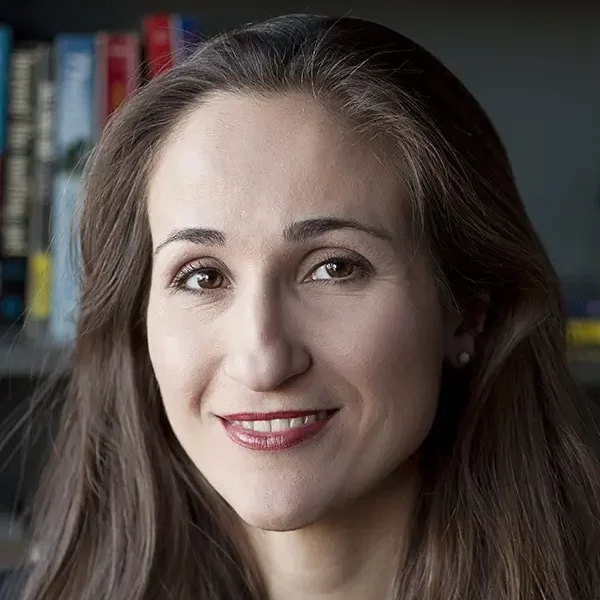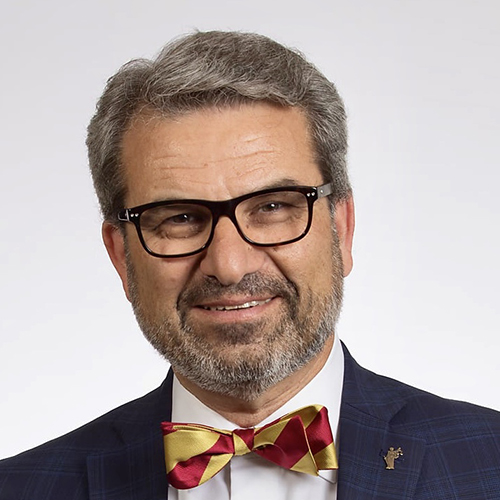Price School experts break down the recent L.A. Council scandal

Takeaways:
- Recorded arguments for diluting the voting power of certain demographic groups could run afoul of federal and state redistricting laws.
- Racism in redistricting is nothing new, but the leaked recordings confirmed many people’s worst fears about the political process.
- Experts believe an independent commission would be better at drawing fair voting districts in L.A.
A leaked audio recording revealing racist remarks from three Los Angeles City Councilmembers has roiled the nation’s second-largest city. The explosive tapes captured political leaders plotting to solidify power through the city’s redistricting process, and using racist and crude language to describe Black, Jewish, Armenian, Indigenous and gay people.

The outrage and fallout have been swift, with now-former Council President Nury Martinez and L.A. County Federation of Labor President Ron Herrera resigning from their posts this week. The California Attorney General’s Office has launched an investigation into the city’s redistricting process. Even President Joe Biden weighed in, calling on the three councilmembers caught on tape to resign.
“The comments on that tape, unfortunately, are not surprising. At the same time, they are still devastating,” said Mindy Romero, director of the USC Price School’s Center for Inclusive Democracy. “At a high level, it’s just plain political manipulation intertangled with racism, and those two things have always been intertwined in U.S. politics.”
The conversation — surreptitiously recorded last year during the city’s once-in-a-decade redistricting process — captured Martinez, Herrera and Councilmembers Kevin de Léon and Gil Cedillo discussing how the city should be carved up politically.
Although carefully considering race when drawing up legislative districts is normal and legal, the recorded conversation contained arguments about possibly diluting the voting power of Black, Asian and Indigenous people, said Christian Grose, professor of political science, international relations and public policy at the USC Price School and USC Dornsife College of Letters, Arts and Sciences. “Historically, my research shows that courts have forced legislative lines to be redrawn when mapmakers didn’t properly consider race under the Voting Rights Act,” explained Grose, an expert in redistricting.

“In my book Congress in Black and White: Race and Representation in Washington and at Home, I show that the U.S. Supreme Court has gotten rid of redistricting plans that were drawn to protect incumbents under the guise of redistricting for racial purposes,” Grose added. In Los Angeles, it is possible that the districts could also violate the Voting Rights Act or other regulations if these past precedents hold.
Racism and corruption in American politics is unfortunately nothing new. Yet this scandal appears to have registered at a higher level with residents and political observers, resulting in widespread condemnation and calls for resignations. That’s in part because the comments were caught on tape, leaving no room for denial, Romero noted.
The recordings also contain a wide breadth of racist remarks — including those about a Black child — in the context of trying to deny people political representation. The tapes will likely sow further public distrust of the City Council, which has been plagued by other scandals, and make it difficult for the council to govern even if all three members involved resign, Romero added.

“What this tape does is just affirm, in a really ugly way, many people’s worst fears,” Romero said. “It’s going to be really hard for anybody that hears that tape to forget that tape — and hopefully they don’t — but it’s going to really affect L.A. politics.”
In response, some state and city officials have proposed putting an independent commission in charge of drawing districts in Los Angeles. Unlike the U.S. House and state Legislature seats in California, L.A.’s council districts are ultimately approved by council members themselves instead of an independent panel. Another idea is to expand the number of council districts.
Grose said his and others’ research shows that “independent commissions in California have led to a greater number of candidates of color winning office.”
Increasing the size of the City Council could allow for smaller districts that better reflect the diversity of the city. But he said there’s research that shows more districts can lead to more inefficient spending of tax dollars.
Romero agreed that the city should be cautious about expanding the number of districts, saying it could create another opportunity for political manipulation.

“The bigger picture of this is that Latino voters have historically faced dilution, Black voters have historically faced vote dilution and Asian voters have historically faced vote dilution in Los Angeles,” Grose said. “This conversation reveals the need to examine the process carefully.”
Frank Zerunyan, a professor of the practice of governance at the Price School and the mayor of Rolling Hills Estates, Calif., believes city officials play a vital role in keeping democracy and communities healthy, given their closer proximity to the constituents they serve.
“While I expect partisanship and prioritization of politics from state or federal elected’s, local officials must remain faithful to their calling of serving the public that elects them,” he said. “Authentic local leaders would not use the tone, anger, and despicable language I heard implicating three local elected colleagues on that tape.”
“L.A. voters deserve better,” he added.